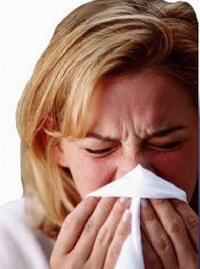What can I do for allergies?
By Catalogs Editorial Staff

What can I do for allergies? Here are some suggestions to feel more comfortable
If you are an allergic type, you know from firsthand experience the toll this can take on your physical and mental well-being. What can I do for allergies? Many things …
SLIT
Those who are plagued are receptive to just about anything that relieves their symptoms and misery. In recent years a form of treatment call SLIT or sublingual immunotherapy has surfaced, which entails the patient putting drops of a low dose of the allergen under his tongue for two minutes and then swallowing.
The treatment starts during the peak pollen season for those with seasonal allergy problems and it can also be utilized year-round for those that need it.
Herbs
Those victims of hay fever may find relief from herbs such as Echinacea (purple coneflower.) It reportedly balances and boosts the immune system, promotes elimination of toxins and hastens drainage, which fights and prevents possible infections.
Some are opting for eyebright, which is a plant boasting anti-inflammatory and astringent properties. Eyebright reportedly lessens hypersensitivity of mucous membranes in the throat, nose, eyes and ears.~
A natural plant-derived compound called quercetin prevents cells from releasing histamine, which causes symptoms and signs of allergies. Histamine is a chemical and it prompts cells to discharge chemicals producing reactions such as coughing, sneezing and red itching eyes.
Introduce quercetin into your body by eating apples, citrus fruits, tea, onions, parsley, lettuce, broccoli, tomatoes and wine. You can also take supplements. Do not use quercetin if you have a liver disease. Treatment should begin before the season starts.
Diet
Change your diet. Onions and garlic contain compounds that slow inflammation. Eat them during allergy season. Horseradish is a good decongestant and honey helps build resistance to pollens causing allergic responses.
It is believed foods high in omega-3 fatty acids lessen symptoms because these acids battle inflammation.
If your allergies are primarily nasal it could be the food you are eating or what you are drinking is making the situation worse, including beer and wine because these beverages prompt congestion in the nose.
Certain foods help diminish symptoms including warm chicken soup and warm tea because they break up airway congestion and the sufferer is able to cough and expel mucus.
Foods possessing proteins similar to those found in specific pollens may cause an allergic reaction. This is referred to as oral allergy syndrome and is often caused by vegetables and fruits. Tomatoes and melons may trigger a reaction in those allergic to ragweed. Celery and peaches can prompt symptoms in those with sensitivity to grass. Avoid these foods.
Take vitamin C or eat foods rich in “C” because this vitamin contains antihistamine properties.
For those allergic to surgical tape and dressings, choose hypoallergenic tape that doesn’t cause the reaction regular tape does.
Many allergy medications, once only available by prescription, are available over-the-counter, such as loratadine, a long-acting antihistamine that does not enter the brain so it doesn’t cause drowsiness. Claritin and Zyrtec are also available OTC.
Some allergy sufferers routinely get shots, which lessen or eliminate the symptoms.
Indoor Allergens
Your symptoms may be the result of indoor allergens, such as dust mites. Installing air purifiers in your home lessens allergens significantly. (Just be sure to clean or replace the filters frequently!) Dehumidifiers lower humidity and combat dust mites. Air conditioning also helps.
You may be sensitive to your pet’s saliva or dander, which are dead skin flakes, or even to the pet’s urine. You may have to avoid contact with the animal.
Asthma can be triggered by exposure to cockroaches. Keep the residence clean, taking out trash regularly and, if necessary, have the home exterminated.
Mold and mildew can cause reactions. Dehumidifiers should be placed in damp areas to prevent mold and mildew. Bathrooms and kitchens should be well-ventilated.
Popular Savings Offers











